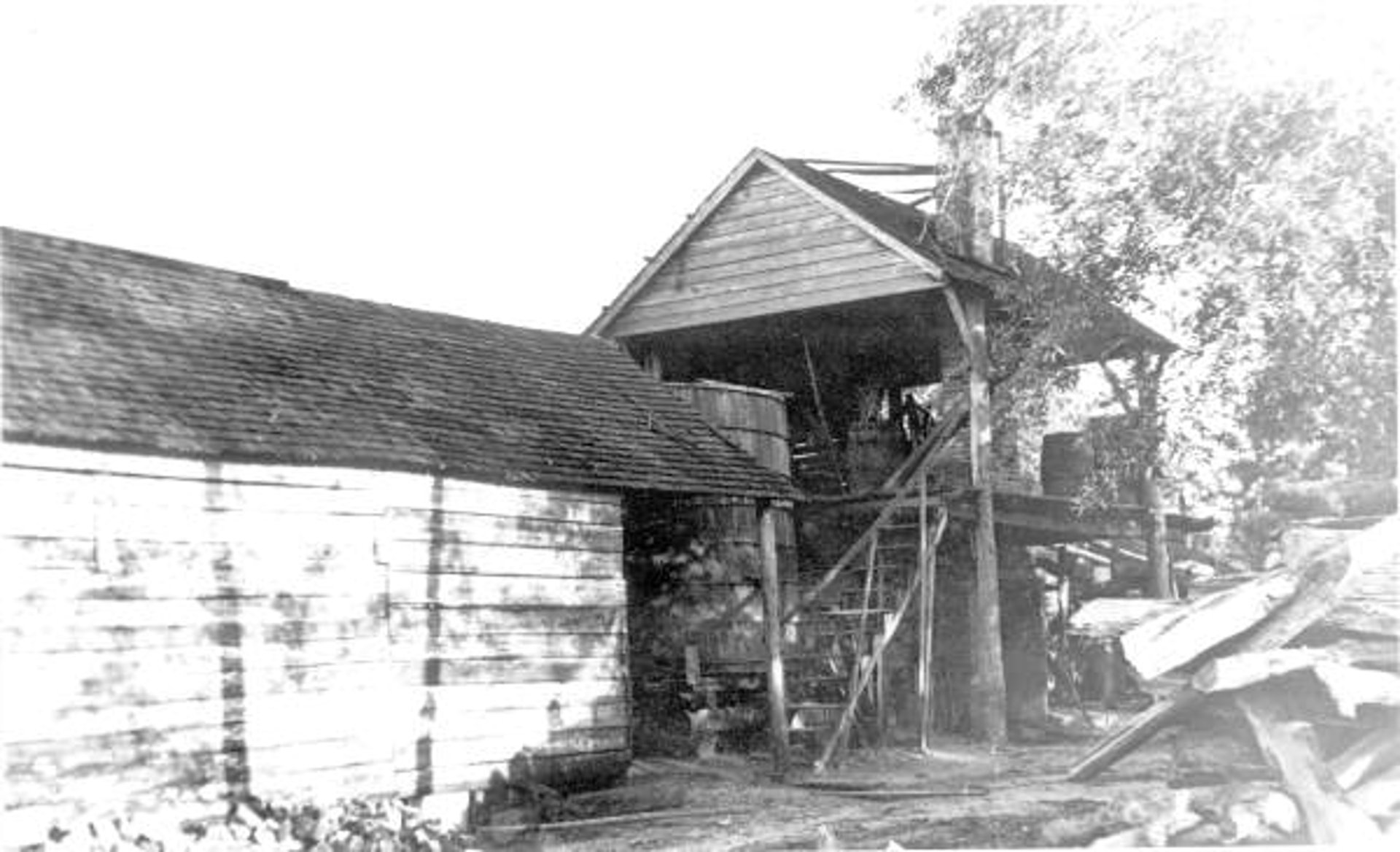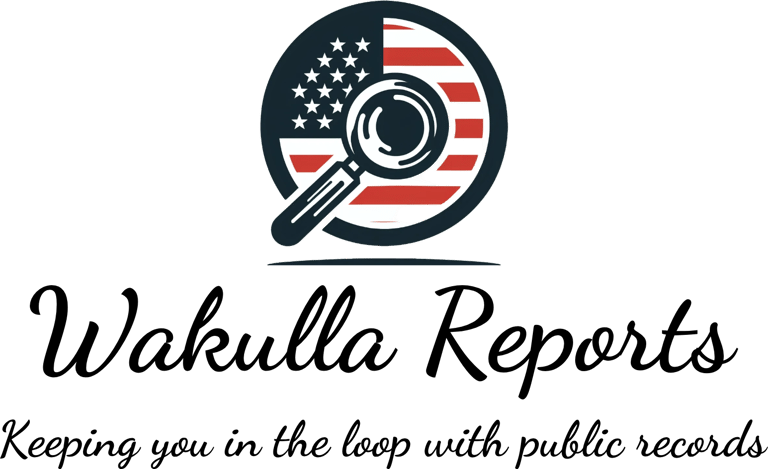Wakulla County's 2024 Audit: Red Flag? Wakulla County’s Financial Controls Need Work Part 3 of 4
Wakulla County’s 2024 audit exposes a material weakness in financial controls paired with a $6 million sewer fee fiasco, revealing sloppy oversight that cost taxpayers dearly while leaving unanswered whether spending aligns with community priorities.
MONEY & FINANCE2025
Bella Boyd
7/9/20255 min read


Hey, Wakulla County taxpayers! We’re three posts deep into our series on the 2024 financial audit, and we’ve already seen that Wakulla County’s books are clean—meaning the numbers add up—but that doesn’t mean your tax dollars are being spent wisely or on what you care about. In our last post, we broke down the county’s $8.2 million revenue boost, $15 million loan spending, and $57.1 million debt, raising questions about whether those dollars went to community priorities. Now, in part three, we’re waving a giant red flag: the 2024 audit found a material weakness in the county’s financial controls, and a March 2025 internal audit uncovers a jaw-dropping $6 million sewer fee fiasco that shows just how bad things can get when oversight fails. These aren’t just accounting hiccups—they’re warning signs that could affect how your money is managed and whether it’s serving “the will of the people.” Buckle up, because this one’s a wild ride through Wakulla’s financial mess.
The 2024 Audit’s Material Weakness: A Financial Fumble
The 2024 audit dropped a revelation in “Finding 2024-001: Audit Adjustments and Preparation of Financial Statements” (Notes to Financial Statements, Page 33). In plain English, the county’s financial team botched some critical numbers and needed the auditors to swoop in and fix them. Even worse, they relied on the auditors to help write the financial statements—the very reports that tell you how your taxes are being handled. Here’s what went down:
Late Fixes Needed: When the auditors started digging, they found “significant adjustments” were required for year-end accruals (like recording revenues or expenses not yet paid) (Page 33). This means the county’s initial numbers were wrong, and without these fixes, the financial statements could’ve painted a false picture of the county’s finances.
No In-House Expert: The county didn’t have anyone with the skills to prepare the statements properly, so they leaned on the auditors for help (Page 33). That’s like a chef asking the health inspector to cook the meal—it’s not their job, and it’s a red flag about the county’s competence.
Why It’s Serious: The auditors labeled this a material weakness, meaning it’s a major gap in the systems that track your tax dollars (Page 33). It’s not evidence of fraud, but it shows the county’s financial management is shaky, which could lead to mistakes or missed oversight.
The auditors made the corrections, earning the county a clean opinion (Independent Auditors’ Report, Page 2), but this weakness is a loud alarm bell. If the county can’t get basic accounting right without outside help, how can you trust they’re keeping a close eye on your money?
The Sewer Fee Fiasco: $6 Million Down the Drain
If the material weakness sounds like a nerdy accounting issue, the March 2025 internal audit (BOCC Meeting Agenda, June 16, 2025, Page 1) makes it painfully real with a $6 million disaster in the county’s sewer expansion project for Wakulla Gardens and Magnolia Gardens. This is where weak controls hit your wallet hard. Here’s the messy details:
Waived Fees: The county waived sewer connection fees ($3,850–$4,050 per home) for 960 homes in Phases 1–3, costing $3.8 million, and plans to waive $2.1 million more for 529 homes in Phase 4, totaling nearly $6 million (Page 1). If you live in one of these homes, you got a free hookup, but every other taxpayer in Wakulla is covering the cost.
Failed Grant Bet: The county assumed a Northwest Florida Water Management District (NWFWMD) grant would pay these fees, per the grant agreement (Section 1.D) (Page 1). When NWFWMD denied the funds, the county didn’t fight, didn’t ask why, and didn’t find other money—they just waived the fees, betting monthly sewer bills ($40.02–$41.02) would cover it (Page 1). (Didn't they discuss a sewer fee increase in the first budget meeting? Now you know.)
No BOCC Approval: County rules (Sec. 31.038) require BOCC approval for fee waivers, but the audit found no vote, no agenda item, no record—nothing (Page 1). A $6 million decision was made behind closed doors, bypassing your elected officials who are supposed to represent you.
USDA Loan Workaround: The sewer project was funded by a USDA loan, which bans “free service” (RUS Bulletin 1780-27, Section 10) (Page 1). County staff and USDA reps claimed the rule only applied to monthly bills, not connection fees, so they processed the waivers without USDA approval (Page 1). That’s a risky move that could jeopardize the loan if the feds disagree.
Taxpayer Impact: This $6 million loss could’ve funded roads, sheriff deputies, or flood protection. Instead, it’s on you to make up the difference, with no say in the decision.
This fiasco shows how the material weakness—sloppy controls and lack of expertise—can lead to real-world losses. Bypassing the BOCC means bypassing you, the taxpayer, and that’s a direct hit to accountability.
More Sloppiness: Leaky Tax Processes
The internal audit didn’t stop at sewer fees—it also exposed a broken non-ad valorem tax system for fire, solid waste, and broadband assessments (Page 1). These fees, charged when homes get a Certificate of Occupancy (CO), are a mess:
Undercharged Fees: If a CO is issued mid-year, properties pay old rates, not new ones. In 2022, 327 properties paid $3 less for fire ($981 total) and 323 paid $4 less for solid waste ($1,292 total). In 2023, 355 properties paid $96 less for fire, costing $34,080 (Page 1). The county calls this “not an error,” just “how the process works.” That’s nonsense—a system that loses thousands because it can’t keep up with approved rates is flat-out broken.
Broadband Mess: A broadband assessment for ~200 properties had issues, like one owner who prepaid but got billed anyway (Page 1). Plus, there’s no county oversight to track these payments, leaving it to the Tax Collector and Finance to fumble through.
Why It Hurts: These losses—$34,080 here, $1,292 there—add up, chipping away at funds for services you rely on, like fire protection or trash pickup. Doesn't the rec park need some refreshing/expansion/amenities?
Why This Hits Hard
Your taxes and fees keep Wakulla running, from sheriff patrols to sewer pipes. These control failures—both the 2024 audit’s material weakness and the internal audit’s revelations—should make your blood boil:
Lost Money: The $6 million in waived fees and thousands in tax losses could’ve fixed potholes, hired more deputies, or boosted schools (Page 1). Instead, taxpayers are stuck with the bill.
Oversight Breakdown: Weak controls mean less scrutiny over spending, like the $15 million loan from 2023 (Management’s Discussion and Analysis, Page 5). Were those projects critical, or did lax oversight let less urgent ones slide through?
Trust on Thin Ice: If the county can’t handle basic accounting, waives millions without BOCC approval, and loses revenue due to bad processes, how can you trust they’re prioritizing your needs?
Spending Questions: The 2024 audit confirms numbers are correct (after fixes) but doesn’t say if spending—like on sewers or that $15 million loan—matches what you want. The sewer fee waivers, done without public input, suggest maybe it doesn’t.
The auditors recommended training staff or hiring an expert for the material weakness (Page 33). The county’s response to the internal audit? Better record-keeping and hoping sewer bills cover the gap (Page 1). That’s like patching a sinking ship with duct tape—not good enough when millions are at stake.
A Pattern of Financial Faceplants
This isn’t Wakulla’s first stumble. In 2023, the Property Appraiser botched the tax roll, causing a $14 million shortfall that hit businesses and homeowners with surprise tax hikes (Page 1). The sewer fee mess and material weakness show the county hasn’t learned its lesson. Backroom decisions, untracked taxes, and reliance on auditors are a recipe for more mistakes. The internal audit notes some fixes—like cracking down on free sewer service for builders after a 2023 rate audit—but catching a few errors doesn’t excuse waiving $6 million without a vote (Page 1).
What’s Next in This Series
We’ve got one post left to wrap it up. In part four, we’ll recap the clean books, big spending, shaky controls, and $6 million lesson in accountability. Stay tuned to make sure your tax dollars work for you!

Additional Social Links
YouTube is your go-to for short clips, video explainers, and visual breakdowns of how Florida and Wakulla governments really work.
Facebook brings you bite-sized written content, sticky-note facts, and rolling updates you can share and discuss.
Prefer to browse at your own pace?
Bookmark our website and visit anytime for fresh posts, resources, and real-life examples from right here in Wakulla County.
© 2024. All rights reserved.
